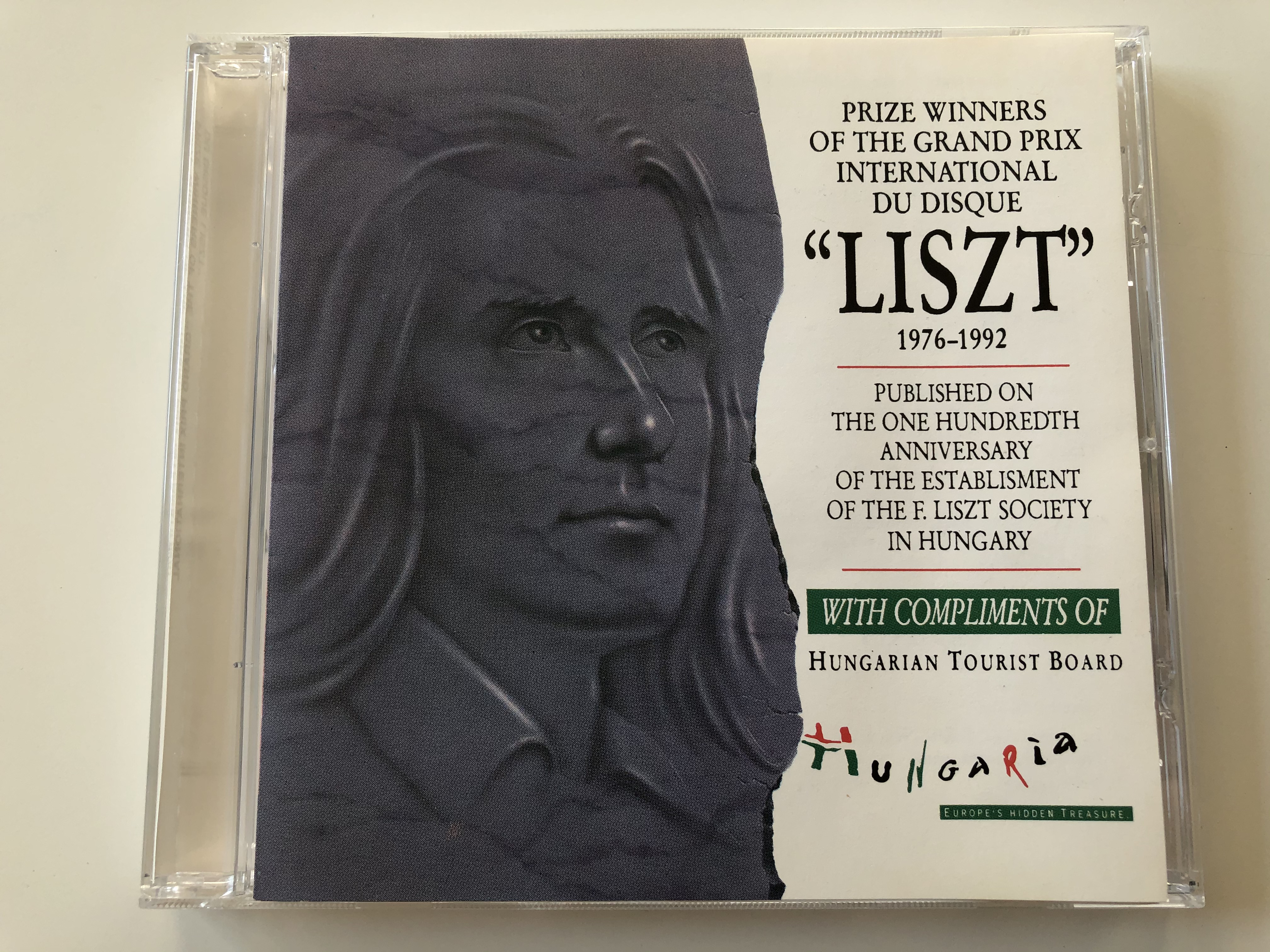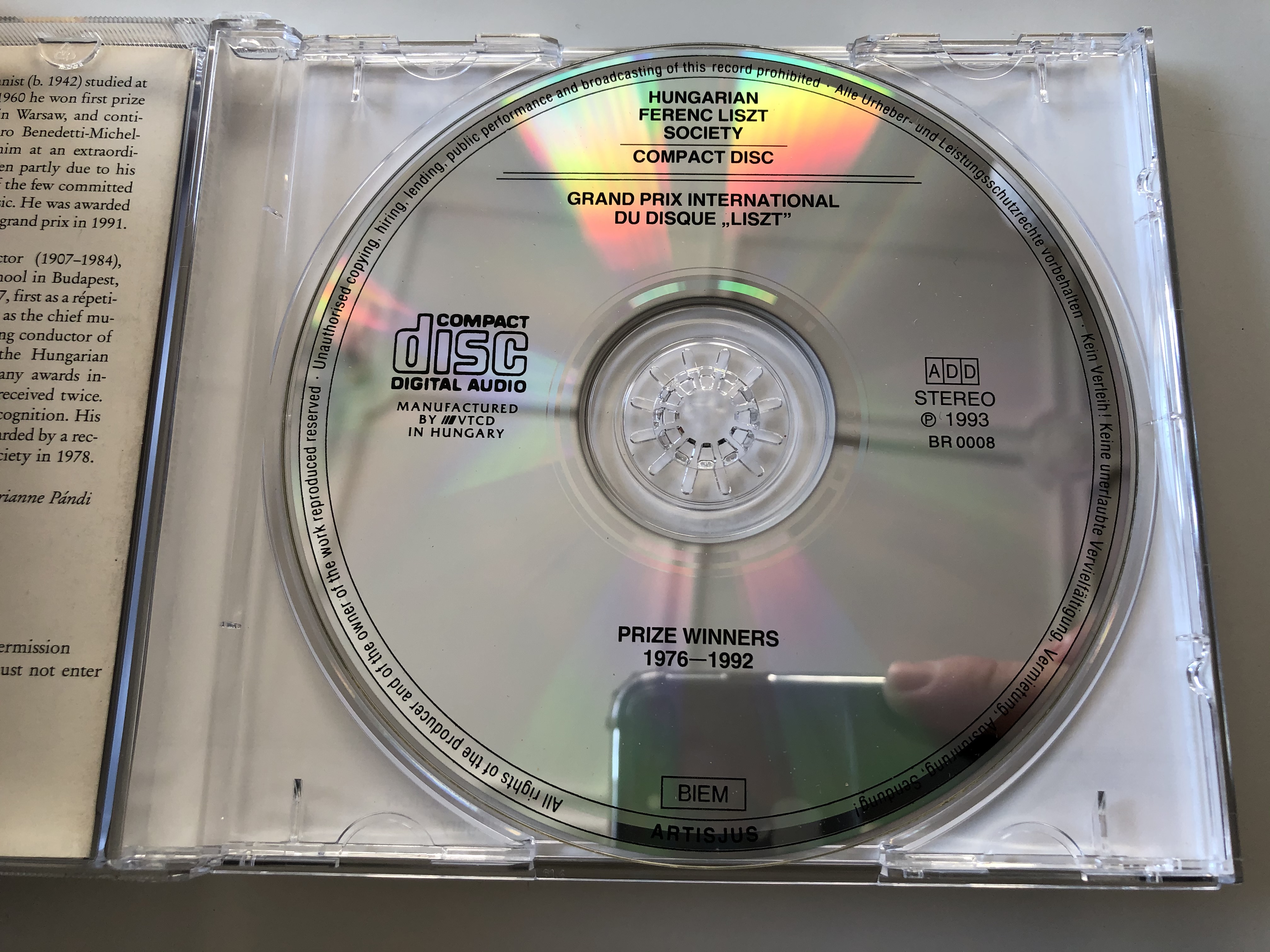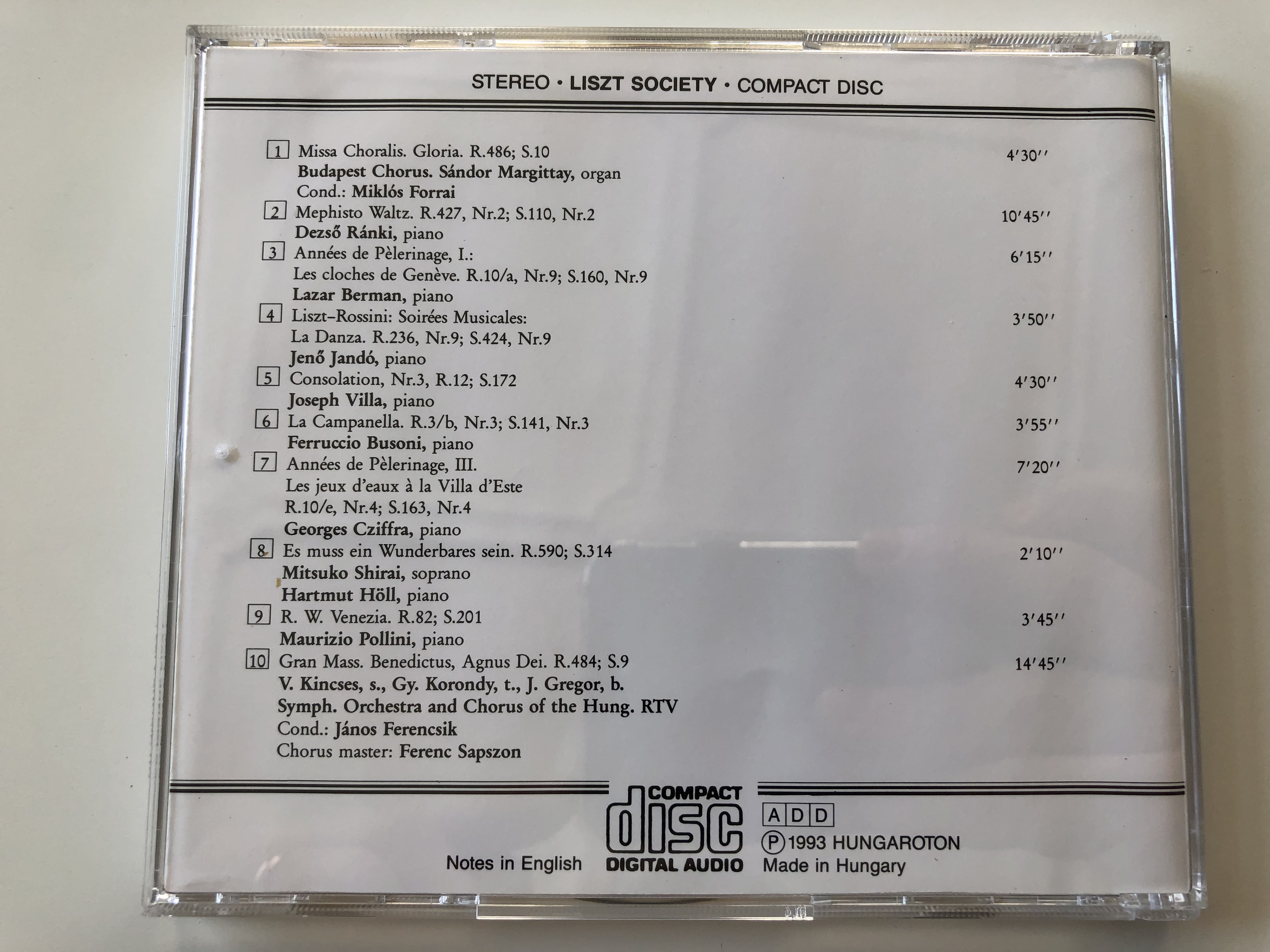Description
Prize Winners Of The Grand Prix International Du Disque ''Liszt'' (1976 - 1992) / Published On The One Hundredth Anniversary of the Establisment of the Ferenc Liszt Society In Hungary / Hungaroton Audio CD 1993 Stereo
BR0008
Product Details:
About the Hungarian Ferenc Liszt Society:
The history of the Hungarian Ferenc Liszt Society up to 1948 is the history of six different associations. Between 1870 and 1902 there were continuous efforts to express esteem for the maestro, both in his lifetime and after his death in 1886, by preserving his memory and spirit. After 1902 came a 30-year break until the foundation of the National Ferenc Liszt Society in 1932. Of the six associations just mentioned, two were not set up with the express aim of fostering the spirit of the composer, but that is what they accomplished in the end. With the exception of the last, they were all established in Hungary during the period after the 1867 Ausgleich, the political compromise with the Habsburgs, when there was a period of rapid capitalist development, and they bear the marks of that period and its conflicts and inconsistencies.In 1870, barely three years after the Ausgleich, a group of women with musical training and inclinations initiated the idea of founding a music society named after the great Hungarian musician. The initiator was the wife of Matyas Engeszer, who paid a visit to Liszt on December 13 1870, taking along the other 11 members of the new society and asking his permission to use his name. Their aim, she explained, was to take up music and singing on a serious basis and only admit lady members with a musical training. Liszt approved of the plan and gave permission for the use of his name. The society spent a year preparing for their debut, and Liszt himself attended the full rehearsals.3 The first concert took place on January 28 1872 and received a glowing review from the Zeneszeti Lapok (Musical Papers): "The programme consisted of four extremely interesting women's choruses of select artistic merit. The first was the children's chorus from Liszt's Elizabeth oratorio [Die Legende von der heiligen Elisabeth], after which came a chorus by Volkmann which he had composed for the occasion, followed by Liszt's chorus O salutaris hostia, and finally by the Spinning Chorus from Wagner's opera, The Flying Dutchman." At the very end, Liszt played as well. "The performance of the choruses was always precise, rich in nuances and artistic [...] Only those familiar with the difficulties involved in organizing and training such a society, and raising it to an artistic level, can truly appreciate the eagerness, self-sacrificing effort and competence that the Engeszer couple have displayed to so great an extent with this society ...
Tracklist:
1. Missa Choralis. Gloria. R.486; S.10 4:30
2. Mephisto Waltz. R.427, Nr.2; S.110, Nr.2 10:45
3. Années de Pélerinage, I.: 6:15
Les cloches de Genéve. R.10/a, Nr.9; §.160, Nr.9
4. Liszt-Rossini: Soirées Musicales: 3:50
La Danza. R.236, Nr.9; S.424, Nr.9
5. Consolation, Nr.3, R.12; S.172 4:30
6. La Campanella. R.3/b, Nr.3; S.141, Nr.3 3:55
7. Anneées de Pélerinage, III. 7:20
Les jeux d’eaux a la Villa d’Este
R.10/e, Nr.4; S.163, Nr.4
8. Es muss ein Wunderbares sein. R.590; S.314 2:10
9. R. W. Venezia. R.82; S.201 3:45
10. Gran Mass. Benedictus, Agnus Dei. R.484; S.9 14:45
More Details:
- Choir - Budapest Chorus, Symph. Orchestra and Chorus of the Hung.
- Organ - Sandor Margittay
- Conducted - Miklos Forrai, Janos Ferencsik
- Piano - Dezso Ranki, Lazar Berman, Jeno Jando, Joseph Villa, Ferruccio Busoni, Georges Cziffra, Maurizio Pollini, Hartmut Holl
- Soprano - Mitsuko Shirai
- Chorus master - Ferenc Sapszon





































